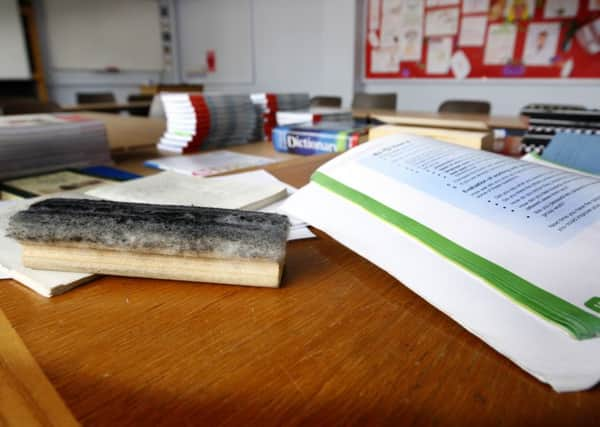‘Don’t pay lipservice to public in WELB area’


Speaking as Education Committee Chair Peter Weir outlined a position paper on area planning on Monday, June 1, Ms McLauglin quoted figures and analysis by two University of Ulster academics who suggested a WELB consultation into its post-primary area plan was tokenistic.
‘Putting Pupils First: Shaping Our Future Strategic Area Plan: Post Primary Schools’ was published in the summer of 2012 and went out for public consultation until October 26 of that year.
Advertisement
Hide AdAdvertisement
Hide AdAmongst its findings were that the development of the new Foyle College must take account of surplus capacity in the local area which at Lisneal stood at 137 pupil places; that over 50 per cent of Londonderry’s post-primary schools were in financial stress; and that there was huge inequality in terms of educational achievement between the city’s secondary and Grammar Schools.
A year later Vani Borooah and Colin Knox from the Institute for Research in Social Sciences published their analysis of public consultations across Northern Ireland.
According to the authors of ‘Influencing change or tokenism?’ the paper evidenced how “one education and library board, in particular, has chosen to ignore grassroots opinion which offers potential local solutions. This represents the worse type of paternalism on the part of school managing authorities; a ‘we know best attitude.’” On Monday, Ms McLaughlin said: “Much was said about the process in the Western Education and Library Board area and about the low level of agreement among respondents.
“Reference was made - we would be foolish to ignore it - to the 7,629 people in the WELB area whose views were ignored. The messages were stark and challenging. Many stakeholders argued that the consultation was tokenistic and failed to meaningfully engage.
Advertisement
Hide AdAdvertisement
Hide Ad“At this point, I want to reflect on the learning and make the point that the plans are simply a process, at this point. In my view, it is an evolving process at this point, and it is important to be particularly mindful of the recommendations in the Committee’s position paper.
“Area plans must be reviewed and should be consulted on through a formal, meaningful and robust statutory process. Any actions emerging from area plans, such as new schools, closures or amalgamations, will and should be subject to development proposals. That means that statutory consultation must take place. That is critical.”